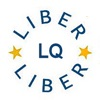RLG, Where Museums, Libraries, and Archives Intersect
DOI:
https://doi.org/10.18352/lq.7744Abstract
This presentation was prepared for the session "Towards integrated resource discovery and seamless access to hybrid materials." This topic is of particular interest to RLG (Research Libraries Group) because the organization has a long and abiding interest in working to provide integrated access to research information from museums, libraries, and archives. What is RLG? RLG is a non-profit consortium of over 160 research institutions from 15 different countries. Included are major universities, national libraries and archives, major museums, and other special kinds of historical collections. The mission of RLG is to collaboratively improve access to information that supports research and learning. The two major streams of activity in this regard include programs and projects that address problems shared by a number of institutions, and the creation of information discovery and delivery services. Member programs and projects are designed to develop solutions to problems in the area of access and preservation of research materials. Types of activities in this area are standards development, creation of guidelines and best practices for description, particularly in the area of unique or primary materials. Often the work of member task groups will result in the fuller development and implementation of online services. The RLG Union Catalog was initially the product solely of member institutions pooling their resources so they could share cataloging information. It now includes data from hundreds of libraries around the world. Two resources that have recently been developed in this way are RLG Archival Resources and RLG Cultural Materials and those are the focus of this presentation.Downloads
Download data is not yet available.

Published
2003-09-16
Issue
Section
Articles
License
Copyright (c) 2003 Anne van Camp

This work is licensed under a Creative Commons Attribution 4.0 International License.
How to Cite
van Camp, A. (2003). RLG, Where Museums, Libraries, and Archives Intersect. LIBER Quarterly: The Journal of the Association of European Research Libraries, 13(3-4). https://doi.org/10.18352/lq.7744





